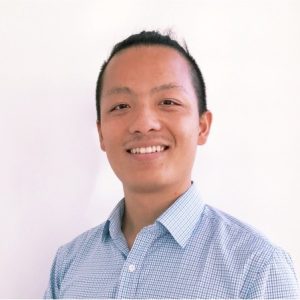Migrants being left behind in job market – ABS data shows
Migrants are continuing to lose out when it comes to employment, according to new data from the Australian Bureau of Statistics (ABS).
Despite record low unemployment rates in Australia over the past few months, migrants are among some groups still struggling in the job market as ABS June data showing that 23.5% of Australia’s unemployed population came from areas where English is not the first language.
The data come as experts say that language barriers, lack of Australian work experience, limited social networks, and issues in having skills and qualifications recognised routinely are among the challenges migrant job seekers face.
Also, the new employment service Workforce Australia has failed to issue licences in places with high caseloads of CALD and refugee job seekers in Australia.
But Minister for Employment and Workplace Relations Tony Burke recently announced a re-evaluation of the implementation of the service amidst several complaints, including migrants and refugees being overlooked.
“The Select Committee on Workforce Australia Services will inquire into and report on matters such as the extent to which services are delivered in a way that respects individuals’ diverse needs, taking evidence on best practice and making recommendations for short and longer-term reforms to improve employment services,” a spokesperson for the Department of Employment and Workplace Relations said.
Research by the Grattan Institute shows migrant workers are an essential part of Australia’s labour force with about one in three workers in Australia born overseas, and those who arrived within the past decade making up around 10 per cent of the nation’s labour force.
 Advocates have called for a streamlined system to recognise overseas qualifications and allow migrants and refugees to work in their applicable professional sectors.
Advocates have called for a streamlined system to recognise overseas qualifications and allow migrants and refugees to work in their applicable professional sectors.
“Newly arrived people want to contribute, they want to be part of a workforce, they want to have a level of economic independence, they want to thrive and settle in the new country,” said Cath Scarth, CEO of migrant and refugee settlement agency AMES Australia.
“We need to work closely with employers and industry about how we can work around recognition of overseas qualifications. We need a process working with professional associations and industry to create a simpler and less costly process,” she said.
One positive development is a professional mentoring program is succeeding in getting newly arrived skilled migrants into jobs that fit their qualifications and experience while also helping to harness the skills and cultural knowledge migrants bring with them, according to new research.
A study of the effectiveness of the Skilled Professional Migrants Program (SPMP) and its mentoring component – which aims to bridge the cultural divide faced by some migrants relaunching their careers in Australia – found that a large number of professional migrants faced considerable challenges in finding work in their fields.
But the study also found that after completing the SPMP, around 80 per cent of students had found work and 61 per cent were in professional jobs.
Before enrolling in the SPMP program, less than 35 per cent of participants had worked in Australia. Those who had worked were mostly in low skilled or non-professional roles.
The study recommends increased investment in programs like the SPMP to improve migrant inclusion in the workforce as well as engaging more employers and stakeholders with professional mentoring program to help more skilled migrants to find work in their professions.
It also recommends replicating some of the features of the SPMP to other groups newly arrived in Australia such as refugees.
The SPMP program, operated by AMES Australia, introduces professional migrants to Australian workplace culture and job seeking techniques. Participants receive advice about professional interviews as well as insights into Australian workplace culture.
Construction engineer Anthony Wang from China migrated to Australia in 2018. After an initial struggle to find work in his field, he joined the SPMP to learn more about the local job market and application process.
Two months after completing the program, he secured a job as a project coordinator working for a small building company.
Anthony said being matched with a mentor who had over 25 years of experience in his industry was very helpful.
“My mentor helped me to understand the recruitment process and the purpose of the process,” Anthony said.
“I was able to attend interviews with a clear idea of what message to get across to the recruiter,” he said.












